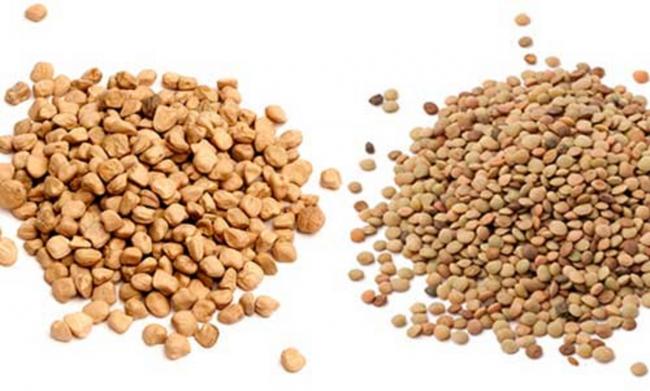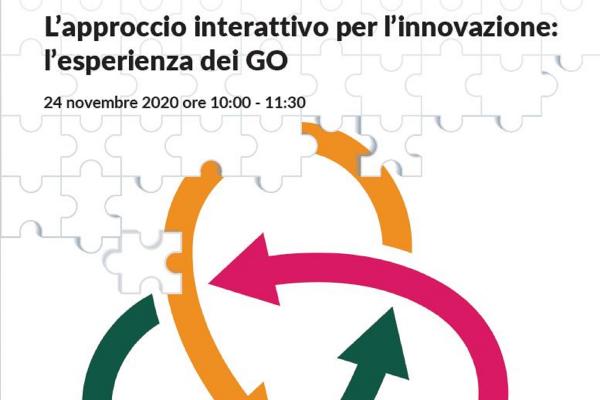Introduction of grain leguminous for food use and of novel agronomic techniques, for to improve income of biological cereal farms in Campania Region

General goal of the project is to promote the diffusion of the cultivation of legumes – in particular chickpea and lentil – on cereal area in Campania Region, facilitating the transfer of innovations of cultural techniques and protection of legumes and wheat (use of a new seeder named “Seminbio”, minimum tillage, false seeding, seed tanning with useful microorganisms, use of new eco-friendly molecules for disease control) and the development of supply chains at regional level – from farmer to transformer – focused on valorization of quality productions, especially organic.
By transferring these innovations, it is possible to have an increase in economic and environment sustainability in the cereal areas of Campania Region because, in crop rotations with wheat, substitution of the most widespread forage leguminous (especially horse bean) with the most lucrative grain legumes for human food use, would be favoured. Moreover, organic production can be more encouraged.
The project provides the transfer, for a two-year period, of the innovative cultivation techniques to the two representative cereal farms (one at Benevento Province and the other one at Avellino Province) with evaluations of quantity and quality – chemical and technological – of the grains produced. These evaluations will be performed by two public partners (CREA and UNINA) and by a private Partner (Agria) of Campania Region, connected to large-scale distribution. Another Partner of the project is a private highly specialized laboratory (Bioagritest, Basilicata Region), who will deal of the microbiological tanning of the seeds. Economic evaluations of the innovations proposed in the project will be performed too. Finally, there will be a wide dissemination of activities and results through a variety of dissemination channels.
The aim of the project is to transfer innovations to Campania's cereal farms, in order to promote their competitiveness, considering that more and more farmers are converting to organic systems. The innovations that will be transferred are as follows:
- cultivation of grain leguminous for human food use (chickpea and lentil) instead of the classic forage leguminous, most commonly used in Campania Region;
- adoption of a new type of seeder (SEMINBIO) and the practice of false sowing, to encourage competition of wheat, chickpeas and lentils against weeds;
- adoption of minimum tillage to reduce production costs and soil erosion;
- seed tanning with useful microorganisms in order to promote productivity and protection of wheat, chickpeas and lentils grown in organic systems;
- economic analysis of the innovations adopted;
- creating a short supply chain in Campania Region, especially for chickpea and lentil (e.g. collection of the products by Agria-Brand Select).
Public Partners of the project are: CREA (Consiglio per la ricerca e l’analisi dell’economia agraria), in particular Research Centre for Vegetable and Ornamental Crops in Pontecagnano (Campania Region) and Research Centre for Cereal and Industrial Crops in Foggia (Apulia Region) and Caserta (Campania Region); Department of Agriculture-University of Naples “Federico II”
Private Partners of the project are: Bioagritest (Basilicata Region), for seed tanning; Agria-Select (Campania Region), for technological characterization of grains legumes; De Martini Farm (Benevento Province, Campania Region) for agronomic trials; Zampaglione Farm (Avellino Province, Campania Region) for agronomic trials too.
Grain legumes are becoming increasingly important for human nutrition because, in the future, the growing need for protein cannot be satisfied by animal-based proteins - with the exception of insects – considering the known negative effects on the environment of livestock farms.
Extended cereal areas of Campania Region (over 112,000 ha with almost 34,000 farms) are highly vocated for the cultivation of legumes such as chickpea and lentil. Actually, crops in succession to wheat are mainly horsebean and alfalfa.
These forage legumes, as well as wheat, are unable to assure satisfactory incomes due to low market prices, that can also prevent the recovery of production costs.
Being chickpea and lentil prices higher than wheat and horsebean (70-90 vs. 22-25 euros/q), also because there is a growing demand for vegetal, nutritional, organic and Italian products, there are all the conditions for fostering a regional supply chain of legumes for human nutrition in cereal areas.
Therefore, the POI intends to transfer agronomic innovations for chickpea, lentil and wheat, that reduce production costs and improve quantity and quality of the products, reducing environmental impact too.
The innovative practices that will be transferred are as follows: 1) use of SEMINBIO, a new seeder that simulates regular spading sowing for both seed distribution and seeding depth, thus allowing better soil cover by crops, so as to be more competitive against weeds even in the absence of weed control; 2) adoption of the practice of false seeding which, implemented consistently over the years, significantly reduces the load of seeds in the soil; 3) adoption of the minimum tillage, a practice that reduces the cost of preparing sowing bed 4) seed tanning with useful microorganisms, so encourage competitiveness, biological control and crop productivity. Moreover, for wheat only, we intend to use some new molecules suitable in biological control. SEMINBIO will be also proposed in combination with false seeding and minimal tillage.
A major company (marchio SELECT) that markets dry pulses for large retailers, is a Partner of the POI, so as to close the supply chain.
| Titolo/Descrizione | Url | Tipologia |
|---|---|---|
|
Sito web del progetto
|
Sito web
|
|
|
Le Newsletter del progetto
|
Materiali utili
|
|
|
Il video del progetto
|
Materiali utili
|

